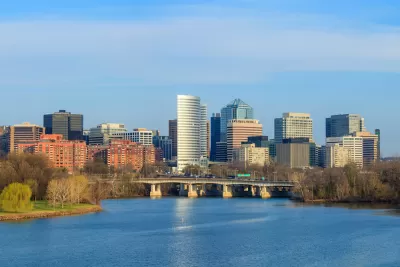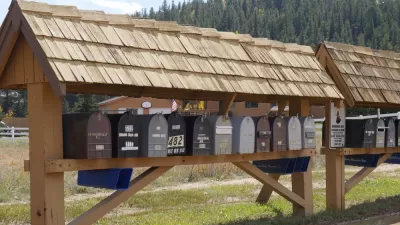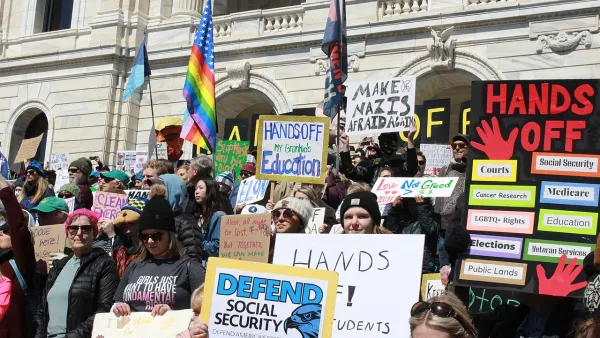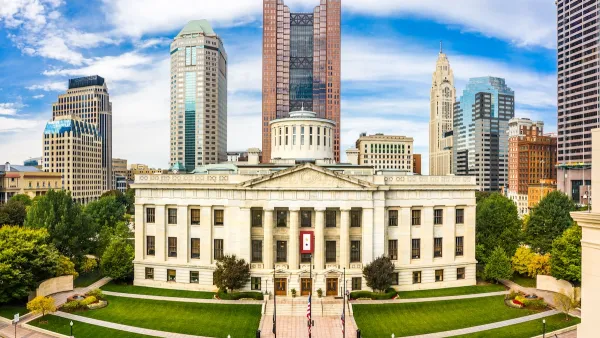When housing costs are high, lower-income residents are not the only ones who end up struggling.

High housing costs do not just affect those people who are priced out of an area, writes Ally Schweitzer. Businesses, local governments, and higher-income residents who can afford to stay all feel the impacts.
Take traffic, for example. "Add more residents to an area, the logic goes, and you put more cars on the road. But there’s evidence that not building housing can make traffic worse," says Schweitzer. When low-income workers have to live further out, they end up on the roads driving to work.
In addition, businesses need workers from a range of income levels. When housing is unaffordable, finding low-wage workers becomes harder for all employers, notes Schweitzer. "And wealthy homeowners in places like Chevy Chase [in Maryland]? They’re affected by housing affordability when their gardeners, nannies and maids can’t afford to live anywhere nearby."
High housing costs burden residents, which means they do not have money to spend at local businesses, adds Schweitzer. "Increasing housing supply — and keeping housing prices in check — 'could result in greater consumption of other goods and services that stimulate growth and employment gains in other sectors, which could have a multiplier effect,' according to the Urban Institute."
FULL STORY: Why The Housing Crisis Is A Problem For Everyone — Even Wealthy Homeowners

Planetizen Federal Action Tracker
A weekly monitor of how Trump’s orders and actions are impacting planners and planning in America.

Restaurant Patios Were a Pandemic Win — Why Were They so Hard to Keep?
Social distancing requirements and changes in travel patterns prompted cities to pilot new uses for street and sidewalk space. Then it got complicated.

Map: Where Senate Republicans Want to Sell Your Public Lands
For public land advocates, the Senate Republicans’ proposal to sell millions of acres of public land in the West is “the biggest fight of their careers.”

Maui's Vacation Rental Debate Turns Ugly
Verbal attacks, misinformation campaigns and fistfights plague a high-stakes debate to convert thousands of vacation rentals into long-term housing.

San Francisco Suspends Traffic Calming Amidst Record Deaths
Citing “a challenging fiscal landscape,” the city will cease the program on the heels of 42 traffic deaths, including 24 pedestrians.

California Homeless Arrests, Citations Spike After Ruling
An investigation reveals that anti-homeless actions increased up to 500% after Grants Pass v. Johnson — even in cities claiming no policy change.
Urban Design for Planners 1: Software Tools
This six-course series explores essential urban design concepts using open source software and equips planners with the tools they need to participate fully in the urban design process.
Planning for Universal Design
Learn the tools for implementing Universal Design in planning regulations.
Heyer Gruel & Associates PA
JM Goldson LLC
Custer County Colorado
City of Camden Redevelopment Agency
City of Astoria
Transportation Research & Education Center (TREC) at Portland State University
Camden Redevelopment Agency
City of Claremont
Municipality of Princeton (NJ)





























